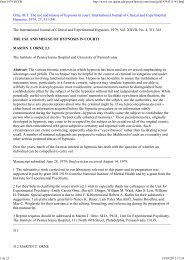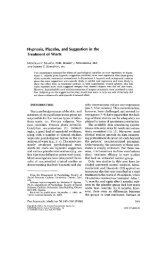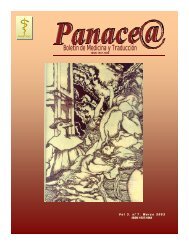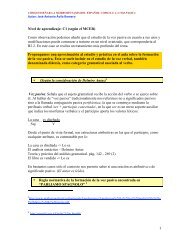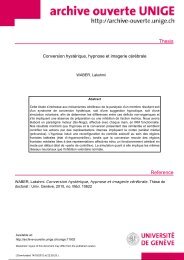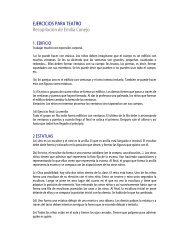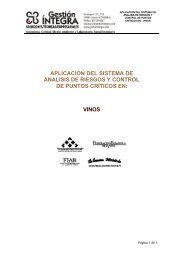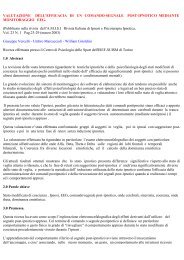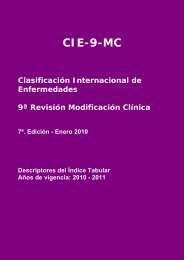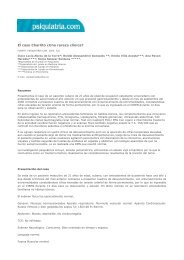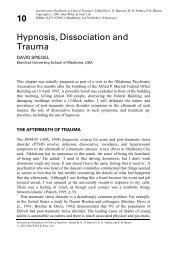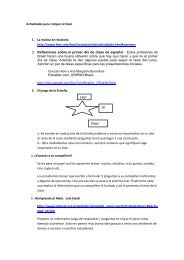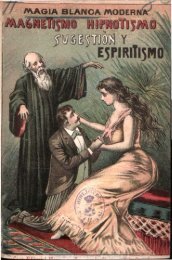Diccionario etimológico comparado de la lengua castellana
Diccionario etimológico comparado de la lengua castellana
Diccionario etimológico comparado de la lengua castellana
You also want an ePaper? Increase the reach of your titles
YUMPU automatically turns print PDFs into web optimized ePapers that Google loves.
FÍSTO FITOG 2615<br />
Fistol, m.<br />
ETIM.— En lo primera acepción se<br />
<strong>de</strong>riva <strong>de</strong>l i\a\. /istolo, diablo, según <strong>la</strong>s<br />
mujeres <strong>de</strong>l pueblo; gran mal, daño,<br />
<strong>de</strong>sgracia, ca<strong>la</strong>midad; el cual se <strong>de</strong>riva<br />
<strong>de</strong> *fischi-olo, <strong>de</strong> fischio, silbido; significando<br />
fisíolo, el que silba; pues el<br />
diablo ó fistolo tiene, según <strong>la</strong>s mujeres<br />
<strong>de</strong>l pueblo, forma <strong>de</strong> serpiente, <strong>de</strong><br />
cuyo silbido tomó el nombre. Derívase<br />
fischio, <strong>de</strong> /ischiare, cuya etim. cfr. en<br />
FISGAR (2."). En <strong>la</strong> segunda acepción<br />
cfr. el Apéndice .De! sentido <strong>de</strong> diablo,<br />
FISTOL pasó al <strong>de</strong> <strong>la</strong>dino, astuto, sagaz,<br />
taimado, etc.<br />
SIGN.— i. Hombre <strong>la</strong>dino y sagaz en su condue<strong>la</strong>,<br />
y singu<strong>la</strong>rmente en el juego.<br />
2. MéJ. Alfiler que se pren<strong>de</strong> como adorno<br />
en <strong>la</strong> corbata ó en <strong>la</strong> pechera <strong>de</strong> <strong>la</strong> camisa.<br />
Fisto<strong>la</strong> f.<br />
Cfr. etim. fístu<strong>la</strong>.<br />
SIGN.— ant. fístu<strong>la</strong> :<br />
Un macho en que el Santo, por tener una fisto<strong>la</strong> en<br />
una pierna solía caminar. Ribad. Fi. S. V. S. T. <strong>de</strong><br />
Aquino.<br />
Fistol-ar. a.<br />
Cfr. etim. físto<strong>la</strong>. Suf. -ar.<br />
SIGN.— ant. afisto<strong>la</strong>r:<br />
Bst&ba ya <strong>la</strong> l<strong>la</strong>^a tan negra y tan ftsto<strong>la</strong>da que apenas<br />
se parecía <strong>la</strong> espina. Gttev. Ep, D. J. Manr.<br />
Fistra. f.<br />
Cfr. etim. fístu<strong>la</strong>.<br />
SIGN.—ÁMEOS.<br />
Fí-s-tu<strong>la</strong>. f.<br />
ETIM.— Del <strong>la</strong>t. fis-tu<strong>la</strong>, fístu<strong>la</strong>, instrumento<br />
<strong>de</strong> caño, f<strong>la</strong>uta, tubo, coñón,<br />
canal |)or don<strong>de</strong> sale el agua; cuya raíz<br />
Fi-s-, <strong>de</strong> <strong>la</strong> primitiva sfi-s-, correspondiente<br />
á lo indo-euro¡)ea spu-, que se<br />
amplifica en spu-s- y se abrevia en<br />
pu-s-, sop<strong>la</strong>r, tocar <strong>la</strong> f<strong>la</strong>uta, espirar el<br />
viento, alentar; y sus aplicaciones cfr<br />
en pústu<strong>la</strong>. Elimológ. significa caño<br />
en que se sop<strong>la</strong>, conducto por don<strong>de</strong><br />
pasa el aire. De /¿-s-tu<strong>la</strong> <strong>de</strong>scien<strong>de</strong>n:<br />
fistul-osus, -osa, -osum, primitivo <strong>de</strong><br />
viSTVL-oso /istul-aris, -are, :, primit. <strong>de</strong><br />
fistul-ar, etc. De fístu<strong>la</strong> se <strong>de</strong>rivan<br />
fístu<strong>la</strong>, fisto<strong>la</strong>r y fistra ( = fist<strong>la</strong><br />
=fístu<strong>la</strong>). Le correspon<strong>de</strong>n : ital. fisto<strong>la</strong>;<br />
franc. fistule ; cat. fisto<strong>la</strong>, fístu<strong>la</strong>;<br />
j)rov. fisto<strong>la</strong>; franc. ant. fistle, festle,<br />
flestre; ingl. fístu<strong>la</strong>, etc. Cfr. fice, enfisema,<br />
etc.<br />
SIGN.— 1. Cañón ó arcaduz por don<strong>de</strong> cue<strong>la</strong><br />
el agua ü otro líquido :<br />
Por <strong>la</strong> fístu<strong>la</strong> 6 espita <strong>de</strong>l a<strong>la</strong>mbique, salía leche purísima.<br />
Corn. Chr. t. 4, lib. J, cap. 35.<br />
2. Instrumento músico <strong>de</strong> aire, á manera<br />
<strong>de</strong> í<strong>la</strong>uta :<br />
Quantas veces cantó c<strong>la</strong>ros Mecenas, T fuertes capitanes<br />
valerosos, En pastoriles fístu<strong>la</strong>s y avenas. Lop.<br />
Phil. í. 51.<br />
3. Cir. Conducto anormal, ulcerado y estrecho<br />
que se abre en <strong>la</strong> piel ó en <strong>la</strong>s membranas<br />
mucosas.<br />
4. *LAGRIMAL. RIJA, i.er art.<br />
Fistul-ar. adj.<br />
Cfr. etim. fístu<strong>la</strong>. Suf. -ar.<br />
SIGN.— Perteneciente á <strong>la</strong> fístu<strong>la</strong>:<br />
Ultra <strong>de</strong> estas, hai otra l<strong>la</strong>mada flstu<strong>la</strong>r, mui carnosa,<br />
toda llena <strong>de</strong> ñudos, y propia para escribir. Lag. Diosc.<br />
lib. 1, cap. 94.<br />
Fistul-oso, osa. adj.<br />
Cfr. etim. fístu<strong>la</strong>. Suf. -oso.<br />
SIGN. -1. Que tiene <strong>la</strong> forma <strong>de</strong> fístu<strong>la</strong> ó<br />
su semejanza.<br />
2. Cir. Aplícase á <strong>la</strong>s l<strong>la</strong>gas y úlceras en<br />
que se forman fístu<strong>la</strong>s:<br />
En <strong>la</strong> mano <strong>de</strong>recha se le hicieron quatro l<strong>la</strong>gas fistulosas.<br />
Sa<strong>la</strong>z. Mend. Dign. lib. 4, cap. 4, § 7.<br />
Fisura, f.<br />
Cfr. etim. fisípedo.<br />
SIGN.— 1. Cir. P>actura ó hen<strong>de</strong>dura longitudinal<br />
<strong>de</strong> un hueso.<br />
2. Cir. Grieta en el año.<br />
3. Min. Hen<strong>de</strong>dura que se encuentra en<br />
una masa mineral.<br />
Fito. m.<br />
Cfr. etim. fijo é hito.<br />
SIGN.— ant. Hito ó mojón.<br />
Fitó-fag-o, a. adj.<br />
ETIM. — Compónese <strong>de</strong>l grg. 'fu-Tá-v,<br />
-su, p<strong>la</strong>nta, vegetal, árbol, cuya raíz 'fu-<br />
y sus aplicaciones cfr. en fi-l-odio; y<br />
'fáY-o«, el que come, para cuya raíz '£x^-,<br />
comer, cfr. fa-ba, ahogar, fauces, etc.<br />
Etimológ. significa que come vegetales.<br />
De 'fü-T¿v y Ypa^w,<br />
(cuyo etim. cfr. en<br />
escribir,<br />
gráf-ico)<br />
<strong>de</strong>scribir<br />
se <strong>de</strong>riva<br />
fitógrafo, el que <strong>de</strong>scribe <strong>la</strong>s p<strong>la</strong>ntas;<br />
j)rim¡t. <strong>de</strong> fitografía, <strong>de</strong>scrijjción <strong>de</strong><br />
<strong>la</strong>s p<strong>la</strong>ntos; <strong>de</strong> don<strong>de</strong> fito-gráf-ico.<br />
De 'fu-T¿-v y LACA, 2.' acepción, formóse<br />
*fito-<strong>la</strong>ca primit. <strong>de</strong> fito-<strong>la</strong>cá-ceo ; <strong>de</strong><br />
(fu-T¿-v y Xóv-o;, discurso, tratado (cuya<br />
etim. cfr. en lógica), formóse fitolog-ía<br />
( = trotQdo <strong>de</strong> los vegetales); <strong>de</strong><br />
^u-TÓ-v y TO|ji.>í, sección, división (cfr.<br />
etim. <strong>de</strong> tcjatí en tomo), <strong>de</strong>scien<strong>de</strong> fitotomía,<br />
{=sección <strong>de</strong> los vegetales), etc.<br />
Cfr. antropófago, filólogo, filomanía,<br />
etc.<br />
SIGN.— Que se alimenta <strong>de</strong> materias vege-<br />
tales. U. t. c. s.<br />
Fito-graf-ía. f.<br />
Cfr. etim. filógrafo. Suf. -ia.<br />
SIGN.— Parte <strong>de</strong> <strong>la</strong> botánica, que tiene por<br />
objeto <strong>la</strong> <strong>de</strong>scripción <strong>de</strong> <strong>la</strong>s p<strong>la</strong>ntas.



